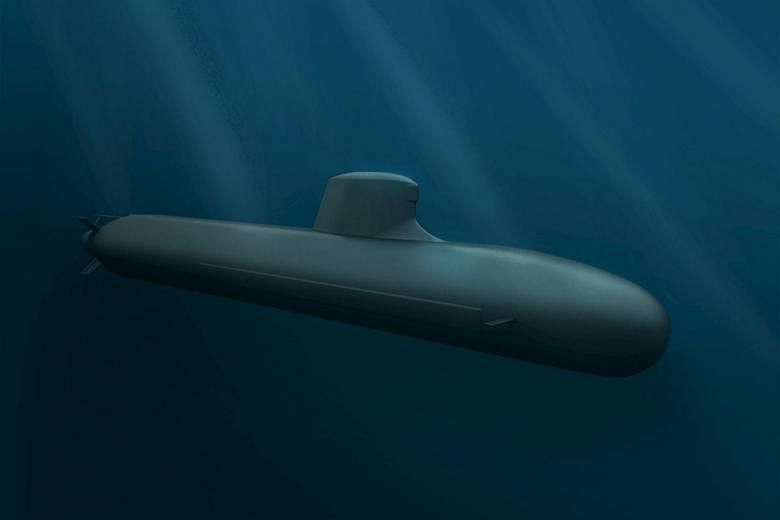SYDNEY/TOKYO (REUTERS) - France has beaten Japan and Germany to win a A$50 billion (S$52 billion) deal to build a fleet of 12 new submarines for Australia, one of the world's most lucrative defence contracts, Australian Prime Minister Malcolm Turnbull announced on Tuesday (April 26).
The victory for state-owned naval contractor DCNS Group marks a vote of confidence for France's defence industry and is a blow for Japanese Prime Minister Shinzo Abe's push to develop a defence export industry as part of a more muscular security agenda.
Reuters earlier reported that DCNS would be announced as the winner, citing sources with knowledge of the process.
"The recommendation of our competitive evaluation process of the panel, the department of defence, the experts who oversaw it, was unequivocal, that the French offer represented the capabilities best able to meet Australia's unique needs,"Turnbull told reporters in the South Australian state capital of Adelaide where the submarines will be built.
Australia is ramping up defence spending, seeking to protect its strategic and trade interests in the Asia-Pacific as the United States and its allies grapple with China's rising power.
Japan's Mitsubishi Heavy Industries and Kawasaki Heavy Industries had been seen as early frontrunners for the contract, but their inexperience in global defence deals and an initial reluctance to build in Australia put DCNS and Germany's ThyssenKrupp AG out in front.
POLITICAL IMPLICATIONS
Beyond the contract price tag, Australia's decision on the submarines has political implications both at home and abroad.
Industry watchers had anticipated a decision to come later in the year, but Turnbull's gamble on a July 2 general election has sped up the process.
The contract will have an impact on thousands of jobs in the shipbuilding industry in South Australia, where retaining votes in key electorates will be critical for the government's chances of re-election. "The submarine project .. will see Australian workers building Australian submarines with Australian steel," said Turnbull.
DCNS proposed a diesel-electric version of its 5,000-tonne Barracuda nuclear-powered submarine, enlisting heads of industry and top government figures to convince Australia of the merits of its offering.
Japan had offered to build Australia a variant of its 4,000 tonne Soryu submarine, a deal that would have cemented closer strategic and defence ties with two of Washington's key allies in the region but risked antagonising China, Australia's top trading partner.
ThyssenKrupp was proposing to scale up its 2,000-tonne Type 214 class submarine, a technical challenge that sources had previously told Reuters was weighing against the German bid.
America's Raytheon Co, which built the system for Australia's ageing Collins-class submarines, is vying for a separate combat system contract with Lockheed Martin Corp , which supplies combat systems to the US Navy's submarine fleet. A decision on the weapons system is due later this year.

